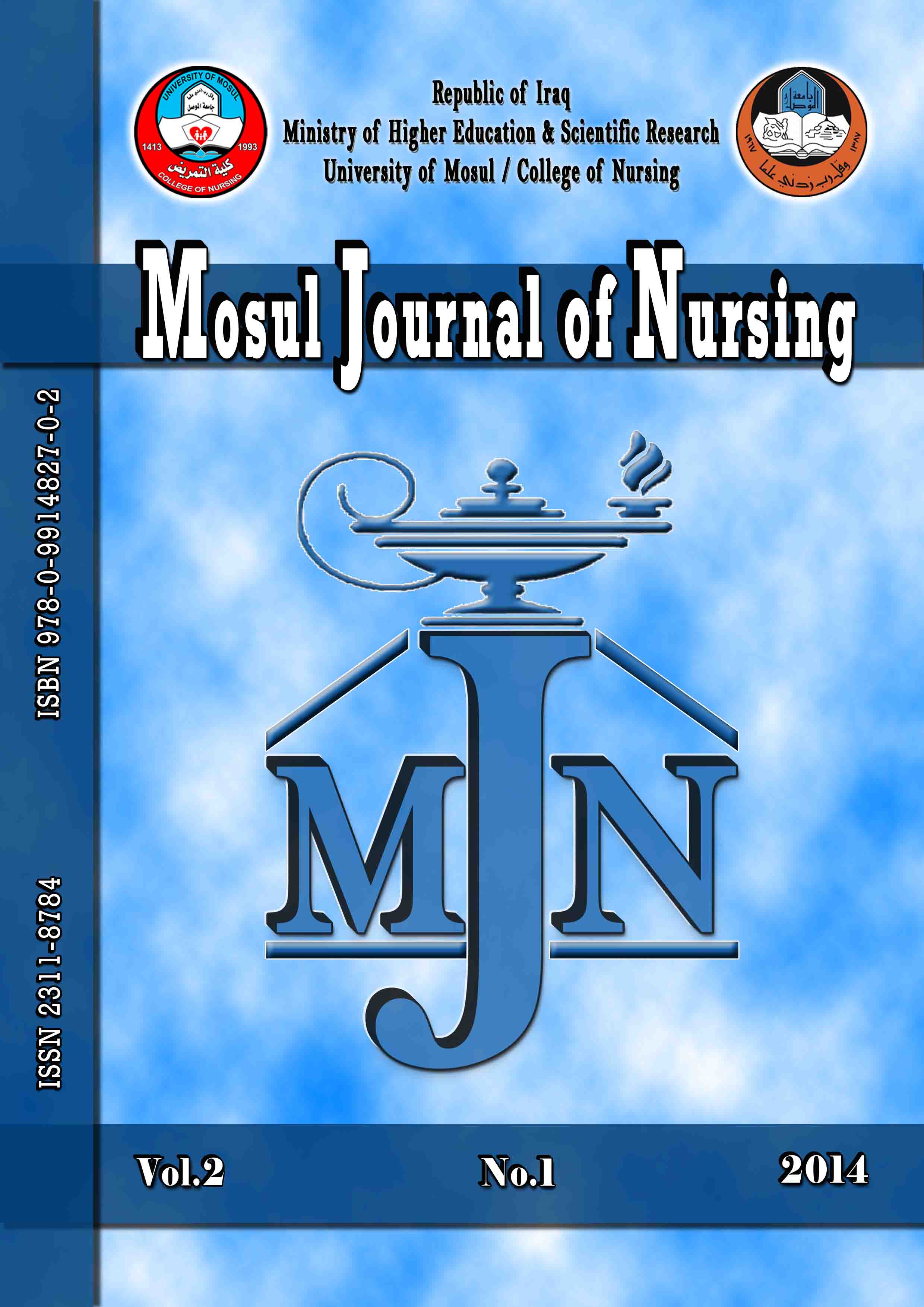Abstract
Background: Eating habits are formed at an early age and the control of screen time is mostly the responsibility of the parents, the involvement of parents in the use of Technology resources and kids\' eating patterns should be explored. According to the recommendations of American Academy of Pediatrics the children\'s watching time be limited to 1–2 hours per day and that no television or other screens be permitted in their bedrooms.
Objective(s): The aim of this study is to detect the association between digital addiction and Eating Behaviors for preschool children.
Methodology: A descriptive (Cross-Sectional Design) study was conducted on preschooler’s parents by using the instrument of the study, the study was carried out through different governmental kindergartens at Al-Russafa and Al-Karkh Districts in Baghdad City through period from November 1st, 2021, to March 7th 2022. The accessible population included the preschooler’s parents whom their children attended to Government kindergartens. Non-probability, convenient sample of (200) child and parents is selected; (100) participant from Al-Rusafa District Government Kindergartens and (100) participant from Al-Karkh District Government Kindergartens.
Results: The results indicates that 50.5% of preschool children show fair level of eating behavior, and the mean score was (43.84±7.239).
Conclusion: Half of study sample on fair level of eating behavior. High significant association between digital addiction and eating behavior of preschool children.
Recommendations: Encourage parents\' guidance and supervision for limited digital screen and content for their children by using special supervisor programs.
Objective(s): The aim of this study is to detect the association between digital addiction and Eating Behaviors for preschool children.
Methodology: A descriptive (Cross-Sectional Design) study was conducted on preschooler’s parents by using the instrument of the study, the study was carried out through different governmental kindergartens at Al-Russafa and Al-Karkh Districts in Baghdad City through period from November 1st, 2021, to March 7th 2022. The accessible population included the preschooler’s parents whom their children attended to Government kindergartens. Non-probability, convenient sample of (200) child and parents is selected; (100) participant from Al-Rusafa District Government Kindergartens and (100) participant from Al-Karkh District Government Kindergartens.
Results: The results indicates that 50.5% of preschool children show fair level of eating behavior, and the mean score was (43.84±7.239).
Conclusion: Half of study sample on fair level of eating behavior. High significant association between digital addiction and eating behavior of preschool children.
Recommendations: Encourage parents\' guidance and supervision for limited digital screen and content for their children by using special supervisor programs.
Keywords
Digital Addiction Eating Behaviors Preschool Children
Abstract
الخلفیة: تتشکل عادات الأکل فی سن مبکرة والتحکم فی وقت الشاشة هو فی الغالب مسؤولیة الوالدین ، وینبغی استکشاف مشارکة الآباء فی استخدام موارد التکنولوجیا وأنماط أکل الأطفال. وفقًا لتوصیات الأکادیمیة الأمریکیة لطب الأطفال ، یقتصر وقت مشاهدة الأطفال على ساعة إلى ساعتین یومیًا ، ولا یُسمح بتلفزیون أو شاشات أخرى فی غرف نومهم.
الهدف (الأهداف): الهدف من هذه الدراسة هو الکشف عن العلاقة بین الإدمان الرقمی وسلوکیات الأکل لأطفال ما قبل المدرسة.
المنهجیة: أجریت دراسة وصفیة (تصمیم مقطعی) على أولیاء أمور الأطفال فی مرحلة ما قبل المدرسة باستخدام أداة الدراسة ، وأجریت الدراسة من خلال ریاض الأطفال الحکومیة المختلفة فی منطقتی الرصافة والکرخ فی مدینة بغداد خلال الفترة من 1 تشرین الثانی (نوفمبر). ، 2021 ، حتى 7 مارس 2022. کان من بین السکان الذین یمکن الوصول إلیهم أولیاء أمور الأطفال فی سن ما قبل المدرسة الذین التحق أطفالهم بریاض الأطفال الحکومیة. تم اختیار عینة غیر احتمالیة مناسبة من (200) طفل وأولیاء الأمور ؛ (100) مشارک من روضة الاطفال الحکومیة فی مدیریة الرصافة و (100) مشارک من روضات محافظة الکرخ الحکومیة.
النتائج: أشارت النتائج إلى أن 50.5٪ من أطفال ما قبل المدرسة أظهروا مستوى مقبولاً من السلوک الأکل ، ومتوسط الدرجة (43.84 ± 7.239).
الخلاصة: نصف عینة الدراسة على المستوى العادل لسلوک الأکل. ارتباط کبیر بین الإدمان الرقمی وسلوک الأکل لأطفال ما قبل المدرسة.
التوصیات: تشجیع الوالدین على التوجیه والإشراف على الشاشة الرقمیة المحدودة والمحتوى لأطفالهم باستخدام برامج المشرف الخاصة.
الهدف (الأهداف): الهدف من هذه الدراسة هو الکشف عن العلاقة بین الإدمان الرقمی وسلوکیات الأکل لأطفال ما قبل المدرسة.
المنهجیة: أجریت دراسة وصفیة (تصمیم مقطعی) على أولیاء أمور الأطفال فی مرحلة ما قبل المدرسة باستخدام أداة الدراسة ، وأجریت الدراسة من خلال ریاض الأطفال الحکومیة المختلفة فی منطقتی الرصافة والکرخ فی مدینة بغداد خلال الفترة من 1 تشرین الثانی (نوفمبر). ، 2021 ، حتى 7 مارس 2022. کان من بین السکان الذین یمکن الوصول إلیهم أولیاء أمور الأطفال فی سن ما قبل المدرسة الذین التحق أطفالهم بریاض الأطفال الحکومیة. تم اختیار عینة غیر احتمالیة مناسبة من (200) طفل وأولیاء الأمور ؛ (100) مشارک من روضة الاطفال الحکومیة فی مدیریة الرصافة و (100) مشارک من روضات محافظة الکرخ الحکومیة.
النتائج: أشارت النتائج إلى أن 50.5٪ من أطفال ما قبل المدرسة أظهروا مستوى مقبولاً من السلوک الأکل ، ومتوسط الدرجة (43.84 ± 7.239).
الخلاصة: نصف عینة الدراسة على المستوى العادل لسلوک الأکل. ارتباط کبیر بین الإدمان الرقمی وسلوک الأکل لأطفال ما قبل المدرسة.
التوصیات: تشجیع الوالدین على التوجیه والإشراف على الشاشة الرقمیة المحدودة والمحتوى لأطفالهم باستخدام برامج المشرف الخاصة.
Keywords
الإدمان الرقمی سلوکیات الأکل أطفال ما قبل المدرسة
